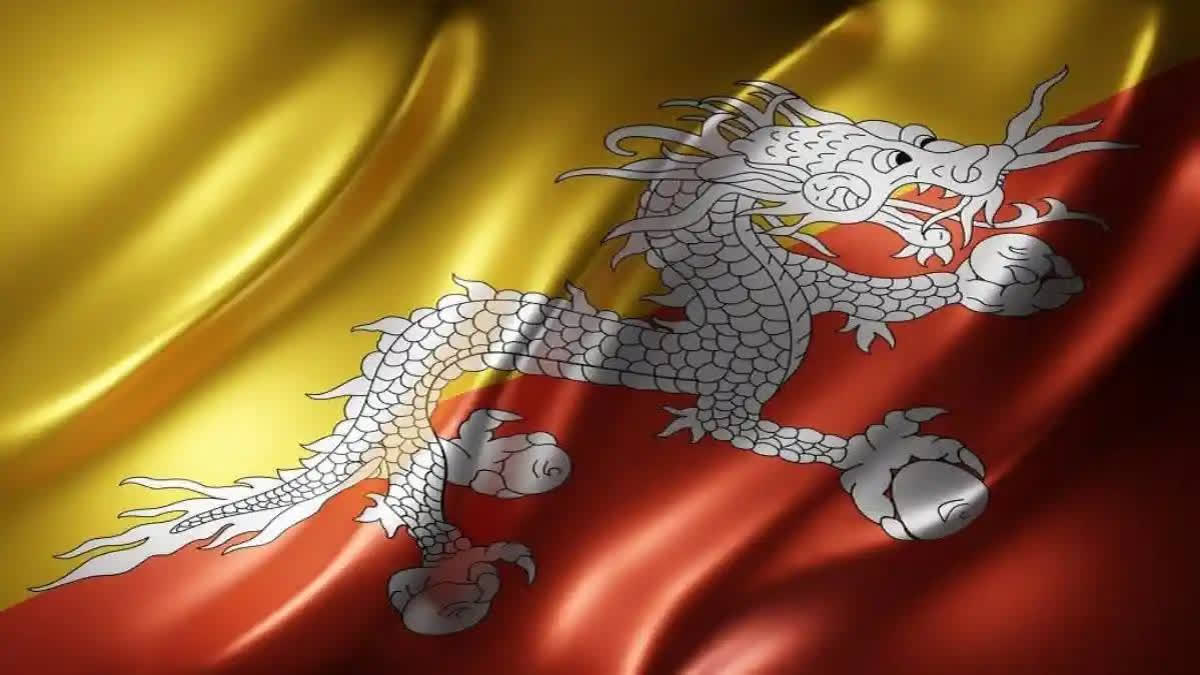New Delhi: When Bhutan King Jigme Khesar Namgyel Wangchuck embarks on a four-day visit to Bangladesh from Monday, India will figure largely during negotiations between the two sides. This is because Bangladesh will propose a trilateral agreement that will include India to import hydroelectricity from Bhutan. This was confirmed by Bangladesh Foreign Minister Hasan Mahmud in Dhaka on Sunday.
“Bhutan has potential of 25,000 MW of hydroelectricity,” Mahmud said during a media briefing ahead of the Bhutan King’s visit. “We would like to import a part of it. But, we cannot do it without using the land of India. So, we will need to sign a trilateral deal.” This comes close on the heels of Prime Minister Narendra Modi’s visit to Bhutan earlier this week.
It is worth mentioning that hydroelectricity generation is a key pillar of economic cooperation between India and Bhutan. For Bhutan, hydropower development continues to be a vital catalyst for socio-economic development. Revenues from hydropower constitute a significant portion of the total revenues of the Royal Government of Bhutan.
The ongoing cooperation between India and Bhutan in the hydropower sector is covered under the 2006 bilateral agreement for cooperation and its protocol signed in 2009. Four hydroelectric projects (HEPs) totalling 2,136 MW are already operational in Bhutan and are supplying electricity to India. The 720 MW Mangdechhu was commissioned in August 2019 and handed over to Bhutan in December 2022. Two HEPs namely, 1,200 MW Punatsangchhu-I, and 1,020 MW Punatsangchhu-II in Inter-Governmental mode are under various stages of implementation.
In fact, last month, ahead of its commissioning slated for October this year, Prime Minister of Bhutan Tshering Tobgay inaugurated the initial reservoir filling of the India-funded 1,020 MW Punatsangchhu-II hydroelectric project. During Modi’s visit to the Himalayan kingdom earlier this week, both sides signed a Joint Vision Statement on India-Bhutan Energy Partnership.
“The two leaders noted the stellar contribution of clean energy partnership in the development of hydropower sector of Bhutan, and in providing energy security to the region,” the statement reads. “Prime Minister Modi appreciated the growing domestic capacity of Bhutanese firms and technical agencies in the implementation of energy projects.”
According to the statement, both Prime Ministers reviewed all aspects of bilateral energy cooperation and expressed satisfaction that projects, which have been jointly implemented, are functioning well and contributing to economic development in Bhutan. “Building on the success of the 720 MW Mangdechhu Hydroelectric Project, the two leaders look forward to commissioning the 1,020 MW Punatsangchhu-II Hydroelectric Project this year,” it stated. “Both sides welcomed the positive expert-level discussions on a technically sound and cost–effective way forward for 1200 MW Punatsangchhu–I HEP.”
Both the Prime Ministers agreed, the statement further read, that the India-Bhutan energy partnership has the potential to benefit both countries by enhancing energy security, strengthening their economies, generating employment, enhancing export earnings and contributing to further development of industrial and financial capacities.
The two sides also agreed that “there are unprecedented opportunities to further strengthen this mutually beneficial bilateral clean energy partnership, including through the development of new energy projects and trade in electricity”. The Government of India, according to the statement, will facilitate necessary access to financing from financial institutions in India as well as the market for power sales for new and upcoming hydro-power projects in Bhutan.
“Power exchange between the two countries shall continue to play an important role in ensuring energy security in the region,” it stated. “In this regard, market access to Bhutanese power producers will be facilitated in accordance with applicable domestic regulations and procedures, through mutually agreed arrangements and delivery points.”
“Energy security in the region” should be read in the context of Bangladesh’s expected proposal for the trilateral agreement with India and Bhutan for power import. It is worth mentioning here that a day ahead of Modi’s visit to Bhutan, Bangladesh Prime Minister Sheikh Hasina held a meeting with Indian High Commissioner Pranay Verma in Dhaka during the course of which she sought India’s cooperation to import electricity from Bhutan using its land.
“The Prime Minister sought support from the Indian side to import that electricity smoothly,” the Dhaka Tribune quoted Hasina’s speech writer Md Nazrul Islam as telling the media after the meeting.
Nazrul Islam also said that Bangladesh would import electricity from Bhutan and there will be an agreement in this regard during the upcoming visit of King Wangchuk to Dhaka starting from March 25.
“Bangladesh plans to import electricity from Bhutan and the discussion between Bhutan and Bangladesh is almost at the final stage, according to the officials familiar with this,” the Dhaka Tribune report stated.
Bhutan, however, is not the first country in South Asia with which Bangladesh is negotiating for the import of power via India. A similar tripartite agreement between India, Bangladesh and Nepal is in the final stage of negotiations. During External Affairs Minister S Jaishankar’s visit to Nepal in January this year signed an agreement according to which India would facilitate the export of 10,000 MW of power from Nepal to India and Bangladesh from the current level of 450 MW. India has emerged as a key player in power grid connectivity in South Asia.
Read More
PM Modi Bestowed Bhutan's Highest Civilian Award 'Order Of The Druk Gyalpo'
Bhutan Thanks India for Unwavering Support; Development Cooperation Talks Held In New Delhi


